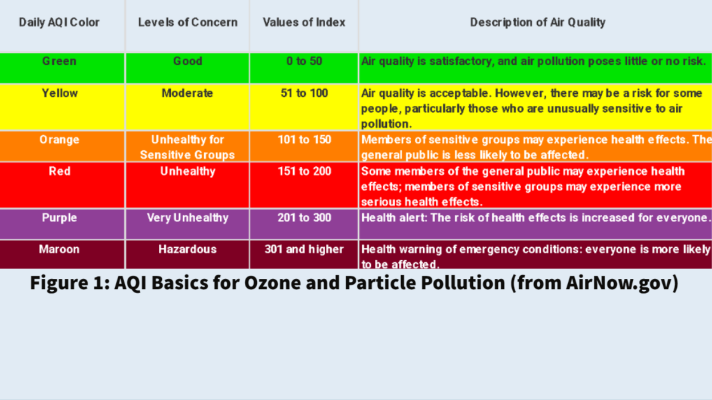
The Lackawanna County Department of Health issued the following information regarding the current poor air quality in NEPA.
Smoke generated by over 400 wildfires burning in Canada has resulted in unhealthy air quality throughout the eastern United States, including Lackawanna County. The air quality index of 33 was recorded in Scranton, PA, on June 3, which indicated good air quality (see chart below). Currently, the air quality index is 191, which is unhealthy.

This will likely persist for the next few days depending on weather conditions and air current patterns. Because of this, the Lackawanna County Department of Health is making the following recommendations.
This advisory is due to fine particulate matter carried by the wind from the wildfires. Fine particulate matter consists of tiny solid particles or liquid droplets in the air that are 2.5 microns or less in diameter. While you would not be able to see those particles, they are in the air and can cause harm to your health.
Exposure can cause short-term health effects:
Irritation to the eyes, nose, and throat
Coughing
Sneezing
Runny nose
Headache
Irritated sinuses
Fast heartbeat
Chest pain
Shortness of breath
Exposure to elevated levels of fine particulate matter can also worsen medical conditions such as asthma and heart disease, and premature death.
People who are especially sensitive to the effects of elevated levels of pollutants, including the very young and those with pre-existing respiratory problems such as heart disease or asthma, pregnant women should avoid spending time outdoors, if possible. Wildfire smoke can harm health even at low concentrations. People with heart or breathing problems, and children and the elderly may be particularly sensitive to PM 2.5.
Those who experience symptoms or have symptoms that worsen should consider consulting their personal physician.
To protect yourself and your loved ones:
Avoid outdoor activities.
Stay indoors with the windows closed.
Avoid using anything in your home that burns (wood fireplace, stove, candles, incense).
Don’t smoke.
Do not vacuum unless it has HEPA filtration.
Be cautious if the weather is hot. If it is too hot to stay inside with the windows closed, or if you are in an at-risk group, go somewhere else with filtered air.
Use an air filter if you are at risk of heart disease and asthma.
Do not rely on dust masks for protection.
N-95 masks or KN-95 masks will help if you MUST be outdoors for a particular time.
Pay attention to public health messages issued by your local government.
